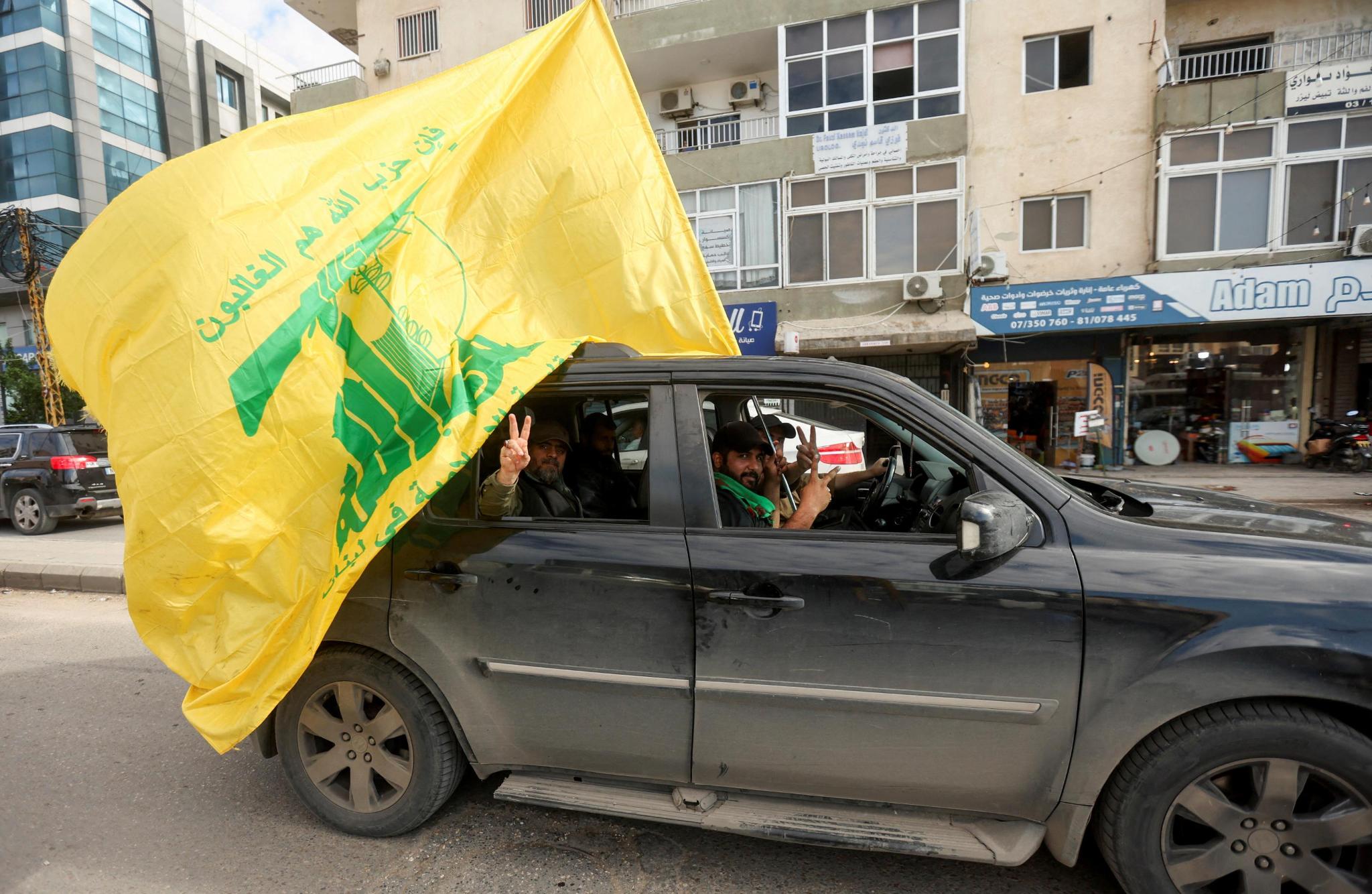Hezbollah leader Naim Qassem made a special broadcast over the weekend, announcing that the organization will not agree to fully disarm so long as Israeli ground troops remain in southern Lebanon as so long as Israeli warplanes continue to violate Lebanese airspace.
Lebanese President Joseph Aoun confirmed last week that there are ongoing talks with Hezbollah aiming at their disarmament, with a goal to have it done this year. The ongoing Israeli attacks and occupation, however, look like they could be an obstacle.
Some progress has been made toward measures required under the November ceasefire. Last weekend, it was reported that Hezbollah had handed over most of its former military sites south of the Litani River. The Lebanese Army was taking those sites over, dismantling many, and also taking some sites north of the river, despite that not being required by the ceasefire.

Lebanese people wave the Hezbollah flag in the city of Tyre after the ceasefire begins | Image from Reuters
Disarming is a tricky matter though. Despite Hezbollah reporting they don’t have any remaining presence south of the Litani, Israel carries out daily attacks against that area, usually on the pretext of targeting Hezbollah. Israel launched multiple deadly attacks on Sunday, killing one in Houla, in the south, and also killing one person in a drone strike against a car in Kfaryachit, a Maronite Christian village in the far north of Lebanon. Two other people were reported wounded in those strikes.
Aoun said the disarming process was a “sensitive, delicate issue,” adding that the repeated Israeli strikes against Lebanon create an unfavorable situation for completing the effort, and that Lebanon will not be forced to rush into it.
Qassem says Hezbollah has already fulfilled all obligations it had under the ceasefire. Meanwhile, Israel has carried out over 2,700 violations since the ceasefire went into effect on November 26. This includes both regular airstrikes and the active control of five military outposts Israeli forces built inside Lebanon during the ceasefire, which Defense Minister Israel Katz says they intend to retain indefinitely.
The pullout seems unlikely in a timely fashion, and indeed Israeli ground troops have been advancing deeper into Lebanon in recent days. Between that and the Israeli strikes, there is a sense that the war isn’t really over.
Post war reconstruction was seen as a top priority for President Aoun and other Lebanese officials. Over $11 billion in damage is reported to have been done to southern Lebanon during the invasion and occupation. The US has blocked Gulf states from providing any reconstruction aid to Lebanon until Israel is satisfied. That seems unlikely to happen, meaning the reconstruction is effectively on hold, and reorganizing Lebanese defense around the military as opposed to Hezbollah, is likely to only go so far so long as the wartime situation remains unresolved.


